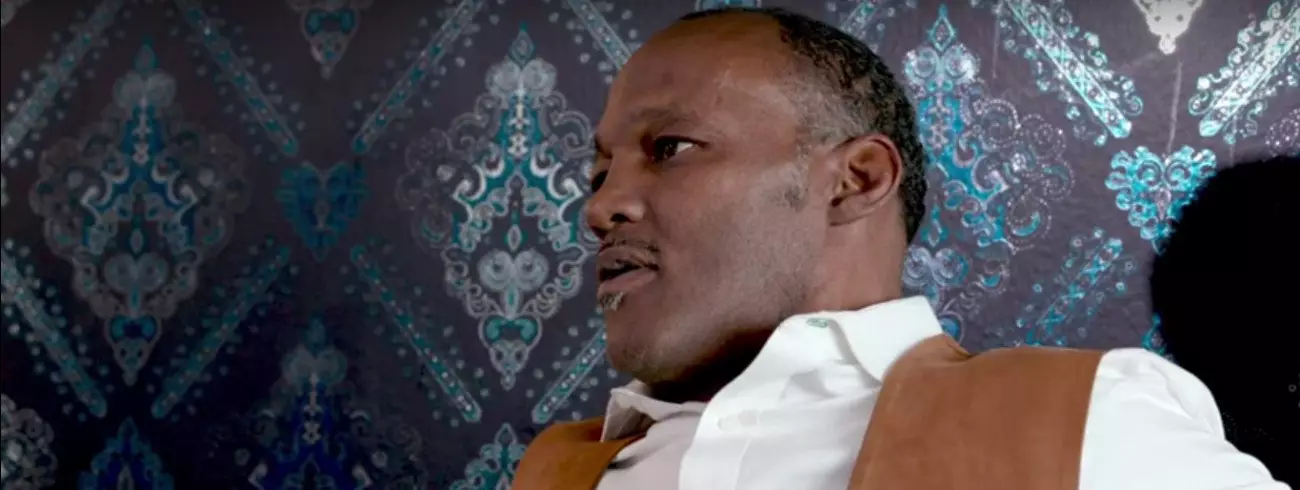In the annals of boxing history, few names shine as brightly as that of Donald Curry. A once-unstoppable force in the welterweight and light-middleweight divisions, Curry etched his name in the sport’s pantheon during the 1980s. He dazzled audiences with his speed, power, and technical prowess—qualities that earned him the moniker “The next Sugar Ray Leonard.” For many boxing enthusiasts, Curry was not just a fighter; he was a symbol of excellence in the sport, inspiring both admiration and aspirations among fans and aspiring boxers alike. However, the narrative surrounding this legendary athlete has taken a tragic turn, revealing an unsettling aspect of life after fame.
At 63 years old, Donald Curry grapples with the profound implications of Traumatic Encephalopathy Syndrome, a condition resulting from repeated brain injuries that can severely impair cognitive functions. This diagnosis is a grave reminder of the physical toll that boxing can exert on its gladiators. Curry’s son, Donovan, has bravely spoken out about his father’s struggles, detailing the alarming effects the condition has had on Curry’s reasoning, memory, and behavior. The reality for Curry is stark; he is now engaged in what is possibly the most difficult fight of his life—not against an opponent in the ring, but against his own mind.
From the days when he dominated the ring to now needing to seek specialized treatment, Curry’s journey is emblematic of a broader issue faced by many athletes in contact sports. The relentless pursuit of excellence often leaves fighters with lasting injuries that go beyond physical scars, leading them to confront mental health crises that can be overwhelming and isolating.
Donovan Curry has made an impassioned plea for help in securing appropriate care for his father. Utilizing social media to reach out to the community, he reflects the vulnerability tied to seeking support when facing such daunting challenges. He shared that after being cared for at a church facility, Donald is now in a hotel in Fort Worth, a temporary solution that does not adequately meet his needs. Donovan’s quest for a specialized facility that can provide comprehensive care highlights a troubling gap in resources available for former athletes facing debilitating conditions.
The need for awareness in mental health, particularly in sports, cannot be overstated. It is crucial to underscore that the legacy of a fighter shouldn’t culminate in struggle. Donald Curry’s story should spark conversations about the responsibilities of the sports community—fans, organizations, and promoters alike. They must step up to support those who have given their lives to entertain and inspire others.
The boxing community has a unique bond, built on mutual respect and admiration for the athletes who put their lives on the line for their craft. It is heartening to see that in response to Donovan’s appeal, there is an emerging sense of collective duty to offer assistance. As news of Donald Curry’s condition spreads, there is a swelling hope that fundraisers can be organized, along with an outpouring of support that may lead to identifying existing facilities that can cater to Curry’s needs—ideally at no cost.
Supporting a figure like Curry is not merely an act of charity; it is a recognition of the profound sacrifices athletes make and the legacy they leave behind. Whether it be through donations, spreading awareness, or even establishing long-term support structures for athletes facing similar challenges, the boxing community has a chance to rally around one of its own.
The plight of Donald Curry serves as a wake-up call regarding the mental health crisis within sports. As stories of athletes battling various forms of mental and neurological conditions come to light, it becomes evident that a systemic shift is needed in how we view and treat these warriors once their time in the limelight is finished. Beyond the dazzling fights and the accolades, there lies an urgent need for structured mental health support and accessibility to specialized care that honors the contributions of fighters like Donald Curry.
As we reflect on the legacy of Donald Curry, let us not only remember him for his triumphs in the ring, but also for the valuable conversations his situation can inspire. Supporting him through this battle is a testament to our love for the sport—the fighters, their stories, and the enduring bond they share with their fans, both in victory and in their darkest hours. It is incumbent upon all stakeholders in the sporting world to ensure that no athlete is left to struggle in silence, and to turn fan admiration into a powerful force for good.

